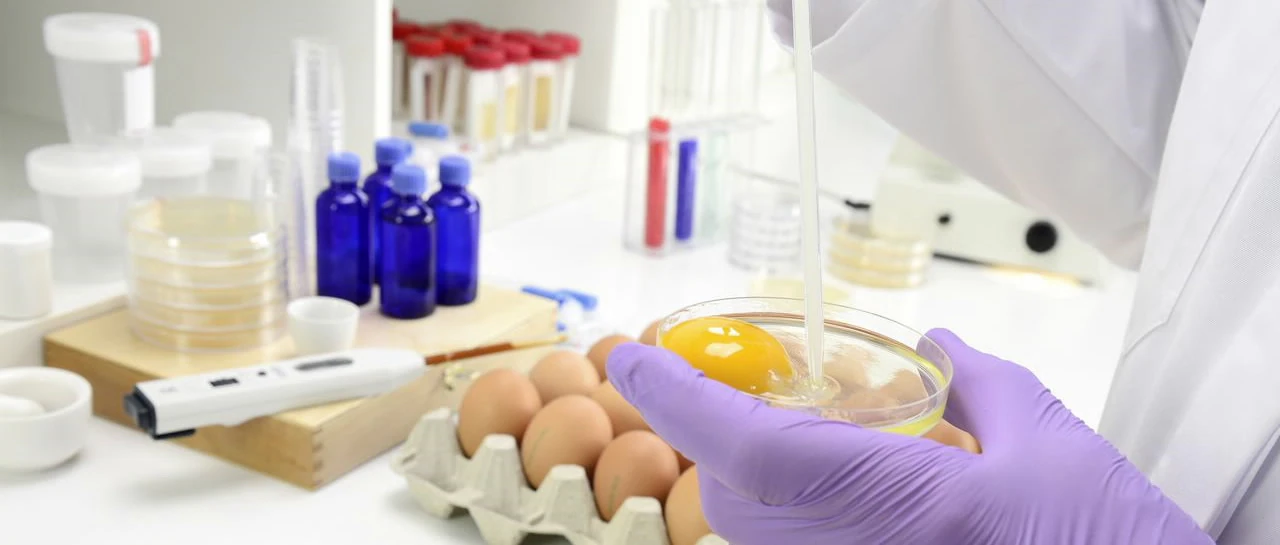ISO 88462 Tocopherol Profiling in Functional Beverages
The analysis of tocopherols in functional beverages through ISO 88462 standards is crucial for ensuring product safety, quality consistency, and compliance with regulatory requirements. Tocopherols are a group of lipophilic antioxidants that play a significant role in stabilizing fats and oils against oxidative degradation. In the context of functional beverages, tocopherol profiling helps identify the type and concentration of these compounds to ensure they do not interfere with other ingredients or degrade over time.
The ISO 88462 standard provides robust methods for quantifying and identifying various forms of tocopherols in complex matrices such as functional beverages. This service is particularly important for manufacturers looking to maintain the integrity and shelf-life of their products by optimizing the addition of tocopherols during formulation stages. Accurate measurement ensures that the beverage remains safe, effective, and consistent with consumer expectations.
The process involves several critical steps including sample preparation, extraction techniques, separation methods using high-performance liquid chromatography (HPLC), and detection via UV-Vis spectrophotometry or mass spectrometry for precise quantification. Each step is meticulously controlled to minimize potential interferences that could skew results. Understanding the specific requirements of this standard allows us to tailor our approach to meet client needs while ensuring compliance.
Our team at [Lab Name] leverages advanced analytical equipment and experienced personnel who are well-versed in adhering strictly to ISO 88462 guidelines. We offer comprehensive solutions ranging from initial consultation on sample preparation techniques to final interpretation of results, providing clients with actionable insights into their product formulations.
By leveraging this service, companies can gain valuable information about the presence and levels of tocopherols in their functional beverages which is essential for maintaining high standards of quality control. Additionally, it supports regulatory compliance by ensuring that all testing aligns with international best practices as outlined in ISO 88462.
Why It Matters
The importance of tocopherol profiling cannot be overstated when developing and producing functional beverages because these compounds are not only antioxidants but also have potential health benefits. Ensuring proper levels ensures both safety and efficacy, which is critical for consumer trust.
- Health Benefits: Tocopherols contribute to overall health by neutralizing free radicals in the body, reducing oxidative stress, and supporting cardiovascular health.
- Safety: Accurate quantification helps prevent contamination or excessive amounts that might pose risks if consumed in large quantities over prolonged periods.
- Consistency: Consistent quality across batches is essential for brand reputation and customer satisfaction. Profiling ensures that each batch contains the expected levels of tocopherols.
By incorporating ISO 88462 compliant testing into their quality assurance programs, manufacturers can enhance product safety, improve formulation accuracy, and meet regulatory expectations more effectively.
Scope and Methodology
| Sample Preparation | Extraction Technique | Separation Method | Detection Method |
|---|---|---|---|
| Grinding samples into fine powder. | Solvent extraction followed by solid phase extraction (SPE). | HPLC with UV-Vis detection or mass spectrometry. | Determine concentration and identify different types of tocopherols based on retention time, peak area, and mass spectra. |
The process begins by thoroughly grinding samples into a fine powder to ensure uniformity. Next comes the extraction phase where solvents are used along with solid phase extraction (SPE) cartridges to remove interfering components leaving behind pure tocopherol fractions suitable for further analysis.
High-performance liquid chromatography coupled with UV-Vis detection or mass spectrometry serves as our primary tool in separating and identifying individual types of tocopherols. This allows us to distinguish between alpha-, beta-, gamma-, delta-tocopherols, among others, providing detailed profiles that are vital for understanding the composition of the sample.
Environmental and Sustainability Contributions
- Eco-friendly reagents: Utilizing environmentally friendly solvents reduces waste generation during extraction.
- Efficient use of resources: By optimizing the extraction process, less solvent is required leading to lower consumption rates.
- Reduced chemical usage: The use of SPE cartridges minimizes the amount of chemicals needed compared to traditional methods like Soxhlet extraction.
Incorporating these practices not only enhances sustainability but also contributes positively towards reducing operational costs associated with hazardous waste disposal.





